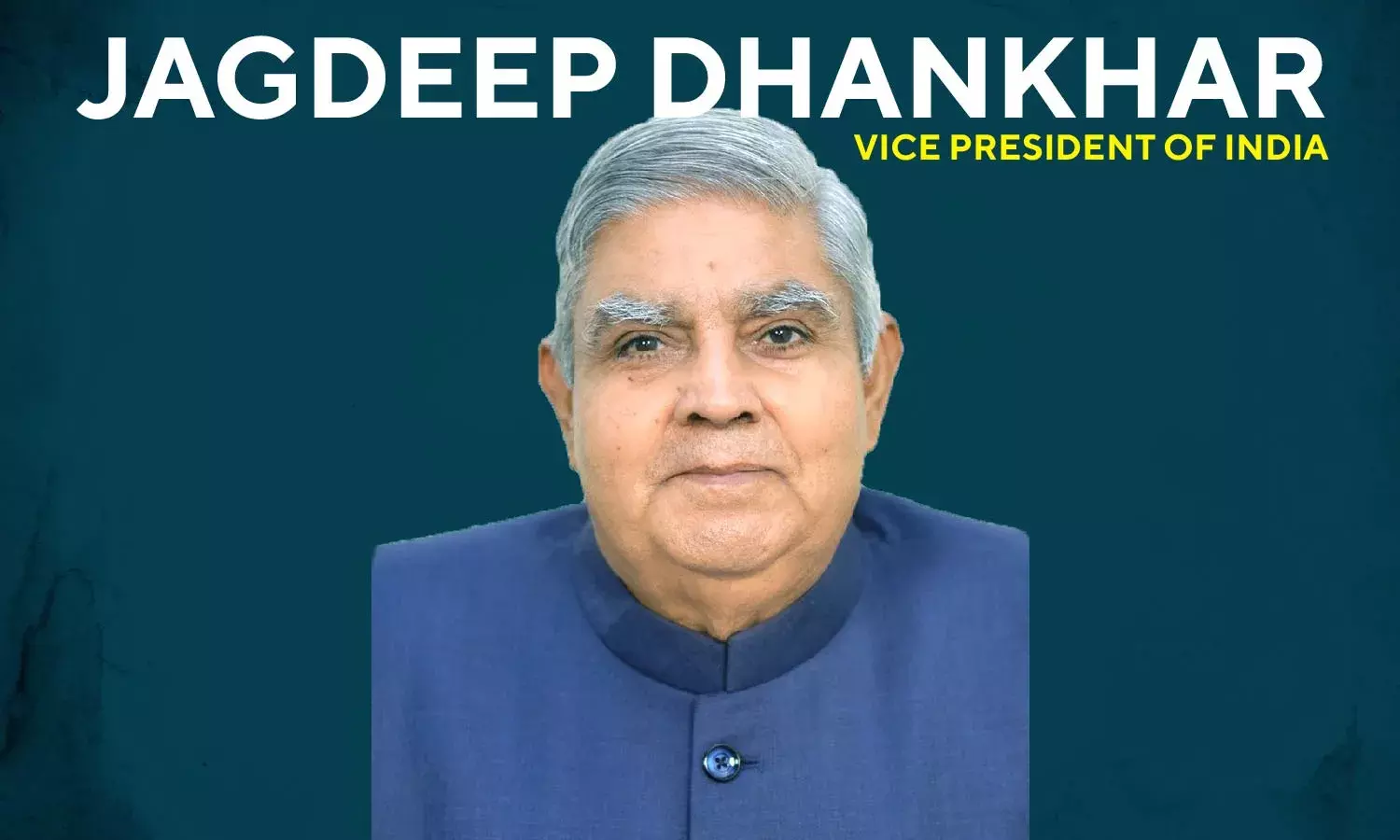Kesavananda Bharati Judgment Set A Bad Precedent: Vice President Jagdeep Dhankhar On Basic Structure Doctrine

Jagdeep Dhankhar, Vice-President and Chairman of the Rajya Sabha made strong statements about judiciary overstepping into legislative domain, during the 2-day 83rd All India Presiding Officers’ Conference at Rajasthan Vidhan Sabha. He said that the judges should refrain from legislating, just like the legislature does not pass judgments or discuss them.
In his maiden speech in the Rajya Sabha, he had called the striking down of the NJAC a ‘severe compromise’ of parliamentary sovereignty and disregard to the mandate of the people. Now he has again criticised the Supreme Court for using the doctrine of basic structure to strike down the constitutional amendment that introduced the National Judicial Appointments Commission. He said that the Kesavananda Bharati judgment of 1973 set a bad precedent.
He then questioned whether the power of the parliament to amend the constitution can depend on some other institution. "With due respect to judiciary, I cannot subscribe to this. Can parliament be allowed that its verdict be subject to any other authority?", he asked.
In 1973, in the Kesavananda Bharti case, the Supreme Court gave the idea of ‘Basic Structure’ and said that the parliament can amend the constitution but not its basic structure. Supreme Court for the first time evolved the right of the Courts to strike down constitutional amendments that violated the fundamental architecture of the constitution.
In subsequent years, when the Supreme Court delivered significant rulings on matters that it held pivotal to this ‘Basic Structure’ and in the process, the parliamentary sovereignty was compromised as per the Vice President.
He said that “in a democratic society, the basis of any basic structure has to be the supremacy of the mandate of people. Sovereignty of people, sovereignty of the parliament, executive thrives on sovereignty of the parliament. Legislature and parliament decide who will be the chief minister or prime minister. The ultimate power is with the legislature. In such a situation, all constitutional institutions, the legislature, the executive, the parliament are required to be within their limits and confirm to the highest standard of propriety and decorum.”
He further referred to one of the key issues, to be discussed by the presiding officers which is the need to maintain a harmonious relationship between the legislature and judiciary in accordance with the spirit of the constitution. He said, “This is the lifeline of a democracy. I am sure this will engage your thoughtful consideration”.
Concluding his speech, he questioned how the sovereignty of parliament can be compromised and said that “we can’t be in confrontation, we have to be in coordination, we have to be in collaboration. There must be a method to find a way out...you have no choice but to protect parliamentary autonomy, parliamentary sovereignty, rights of the people.”

